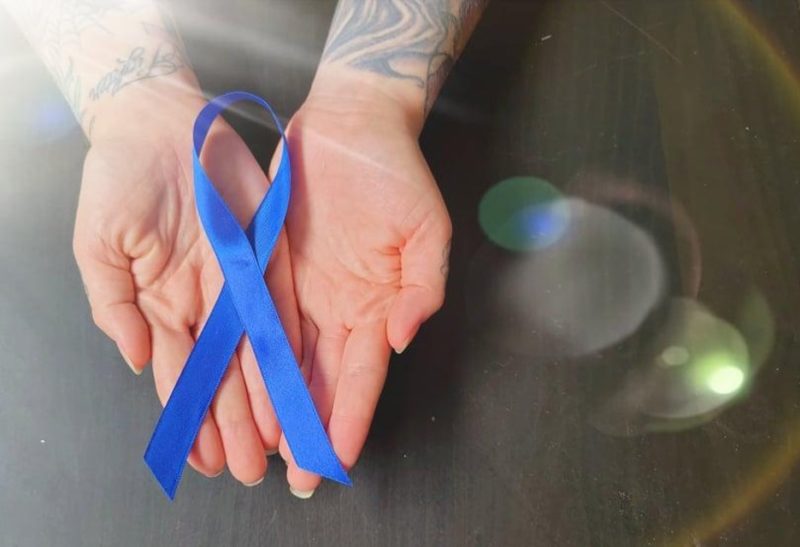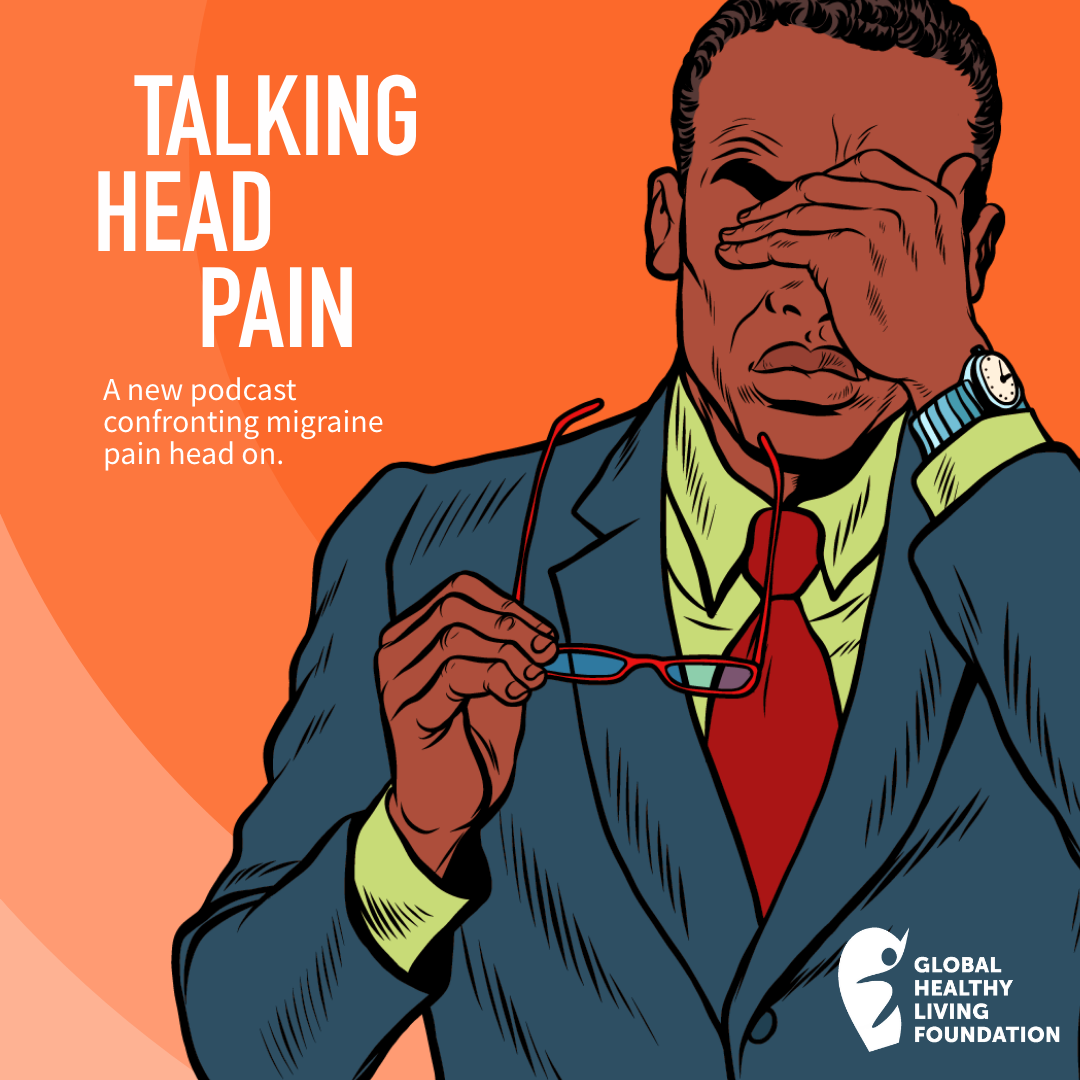Every year during September, Canadians reflect on the number-one cause of disability in the country: Arthritis, which affects one in five Canadians, according to the Arthritis Society.
When someone opens a dialogue about arthritis, it educates others about how it can impact someone’s life. (Currently 6 million Canadians and counting have some form of arthritis; over half of whom are diagnosed before the age of 60.)
Chances are someone you know lives with arthritis — or you will one day live with a form of it.
However, arthritis is plagued with misconceptions and stigmas. The two that get me the most — as someone who was diagnosed with rheumatoid arthritis at age 29 — is that arthritis affects only impacts the elderly and is not a serious disease when, in reality, arthritis can be a destructive disease. The U.S. Centers for Disease Control and Prevention notes that there are more than 100 different forms of arthritis — a term to describe any conditions that affect the joints, tissues around the joint, and other connective tissues — and it can strike anyone at any age. The most common forms of arthritis include osteoarthritis, rheumatoid arthritis, gout, psoriatic arthritis, and axial spondyloarthritis, to just name a few.
Arthritis Awareness Month this year may be one of the most important yet, amid the current COVID-19 pandemic. Many types of arthritis, such as rheumatoid arthritis and lupus, can make people immunocompromised. This may increase the risk for COVID-19 complications and also make the COVID-19 vaccine less effective.
And many people with arthritis have other risk factors that increase their risk for poor COVID-19 outcome — age, of course (as many arthritis patients are elderly) is a big one. Arthritis also commonly comes with comorbidities that can affect COVID-19 severity, such as heart disease, lung disease, diabetes, and obesity. It is important for others to know that they can take their part in keeping us safe from the coronavirus and other infections. They can also do their part to honor arthritis during Arthritis Awareness Month in Canada.
Why Arthritis Awareness Is Important
There are so many reasons it’s important to increase awareness of what arthritis is and who is affected by it. The two biggest ones, in my opinion, are this:
- Raising awareness can help people get diagnosed and treated more quickly
- Raising awareness can increase support and understanding and improve quality of life for people already diagnosed and living with arthritis
Being aware of a disease and its symptoms means someone who is experiencing those symptoms may be more likely to take action and get their condition diagnosed and treated. It’s important, for example, for people to know that arthritis can be so much more than just knee pain, a stiff hip, or sore hands. Knowing that some forms of arthritis can cause a wide range of symptoms could prompt people to go to health care providers when they experience symptoms like chronic pain and fatigue in addition to joint pain.
Communicating about our symptoms can be difficult if we don’t really understand what we are going through. Living with rheumatoid arthritis was difficult at first for me to describe to my health care providers. It didn’t help that I was young and definitely didn’t look sick either. Knowing the symptoms of rheumatoid arthritis helped me ask for rheumatoid arthritis bloodwork testing (which came back positive). I had spent years in pain without a diagnosis or treatment because I did not know what was going on with my body nor how to vocalize it.
How Arthritis Awareness Month Helps Me Embrace Life with Arthritis
Arthritis Awareness Month is a time for me to shine and connect with my community. Arthritis is not an easy disease to live with. It made a major dent in my life at only 29 when I was diagnosed with rheumatoid arthritis. To cope with my chronic illness, I have immersed myself in patient advocacy, which has been very cathartic to me.
But whether or not you consider yourself a patient advocate, Arthritis Awareness Month is a time for those living with arthritis to feel less alone in their struggles. Even though arthritis is common, those who do not live with the illness often do not have a full understanding of what it is like every day with the pain and exhaustion of arthritis, to deal with regular doctor appointments and changing medications on a continuous basis.
Arthritis Awareness Month gives the opportunity to highlight the challenges that 6 million and counting Canadians live with for a better understanding, but to also to connect us patients others who face similar struggles so we can feel less alone.
The patient voice can be a powerful thing. The more voices the more we get noticed, the quicker change can happen. This is a valuable lesson I’ve discovered during my time as a rheumatoid arthritis patient advocate.
There is more than one way that a patient can use their voice when it comes to educating others about all forms of arthritis. Patient advocacy can come in different forms, from sharing your experience on social media to participating in cutting-edge arthritis research.
I’m ‘Moving My Way’ in Support of the Arthritis Society
In support of the Arthritis Society, the largest nonprofit arthritis charity in Canada, where I started my patient advocacy journey as an ambassador with in 2017, I am excited this year to join their Move Your Way campaign during 2021 Arthritis Awareness Month.
Move Your Way is an exciting way to organize an activity that you enjoy and virtually connect with family and friends to raise critical funds for those impacted by arthritis. The options are endless — walk, bake, run, bike, craft, create, and more.
During the month of September I will be doing some challenging hikes to give hope and raise funds and awareness for arthritis advocacy, research, and treatments. Visit my Move My Way page today and get inspired on how you can start your own Move My Way.
I Am Using the Power of Social Media
During September I am using my social media channels under Chronic Eileen to share insights on living with arthritis from articles, facts, stories, memes, and more. Social media is a great tool to widely distribute knowledge about a certain topic with the aim of reaching the largest number of people possible. Be sure to use the hashtag #ArthritisAwarenessMonth in your posts. Using the #ArthritisAwarenessMonth hashtag is a great way to not only connect with Canadians living with arthritis but those across the globe. (And there are a lot: According to StatPearls, 350 million people in the world live with a form of arthritis.) If you are feeling alone with your arthritis, this is a great way to find community, too.
Facebook offers you the opportunity to create a donation page for your birthday or just because, so your friends and followers can give you the gift of a donation toward a nonprofit of your choice. Each year for my birthday I raise funds for Arthritis Research Canada, an arthritis organization close to my heart and I participate as a member of their Arthritis Patient Advisory Board.
Donate Straight to Life-Changing Research — Or Participate in Research
As a member of the Arthritis Research Canada patient advisory board I’ve seen firsthand where your donations go when it comes to the important life-changing research being done at Arthritis Research Canada, the leading clinical arthritis institute in North America.
Can’t afford to make a donation? Participating in research is just as important and is a great way to make a difference in the lives of others living with arthritis and those who treat it. Check out what current studies are recruiting.
I Am Going Live on Arthritis Research Canada’s Instagram
On September 9 I will be taking over and going live on Arthritis Research Canada’s Instagram to showcase what it is like to live a day with rheumatoid arthritis. I’ll be sharing it all: how I deal with early mornings, pain relief tips throughout the day, parenting, how I exercise, and what I eat in a day. Everyone talks about how arthritis is often an invisible disease — this is a great way to make arthritis more visible to everyone who really doesn’t know what it takes to sometimes get through the day.
I’m Writing to Elected Politicians and Local Media
The Arthritis Society has generated an easy template for you to use to contact an elected politician or your local media. Currently they are running a campaign to contact elected officials on joint replacement surgery wait times in Canada. What better time to contact them than Arthritis Awareness Month when our voices are the strongest. Remember, the more voices they hear, the better chances of getting noticed by community leaders to create change and be heard.
I’m Wearing Blue
The official ribbon color for arthritis is blue, so even this girl who prefers to wear black and only black will be wearing blue to represent those living with arthritis. But blue isn’t the only thing I plan on wearing….
I’m Creating Rheumatoid Arthritis Awareness During NY Fashion Week
I’ve partnered with fashion designer and fellow rheumatoid arthritis advocate Michael Kuluva to create some RA awareness T-shirts for his fashion label Tumbler and Tipsy, which for years has partnered with CreakyJoints on its New York Fashion Week shows to raise awareness for arthritis and chronic illness. Be sure to watch the virtual fashion show, which includes my shirt and features several other advocates around the world, on September 14, 2021 at 8 p.m. EST at www.VirtualFashionShow.net.
I’m Having a Conversation To #TalkOverRA
I and a few other rheumatoid arthritis advocates across Canada have partnered on a campaign that is focused on creating meaningful conversations with your doctor to reach your arthritis treatment goals. The campaign is called #TalkoverRA, which aims to encourage Canadians living with rheumatoid arthritis to have a conversation with their doctors toward a healthier tomorrow. You can print a downloadable discussion guide to share with your doctor during your next appointment to make sure you’re asking the right questions so you can make sure your condition is being managed as well as possible.
I’m Chatting On #CreakyChats
I will be joining CreakyJoints and other arthritis advocates on Tuesday, September 14 in a #CreakyChats about Arthritis Awareness Month. #CreakyChats is a monthly, one-hour patient-driven Twitter about topics that are important to the chronic disease community. It is a safe space for people to discuss pressing issues facing the arthritis and chronic disease community. During this particular #CreakyChats, we will be discussing the previously mentioned fashion show.
I Am Taking Care of Myself
Most importantly, please join me in taking care and showing ourselves some self-love this Arthritis Awareness Month. You are heard, you are seen, and you are not alone.
Patient advocacy is hard work and it’s important to make sure we’re taking care of ourselves and doing what we need to do to stay healthy — and that includes both physical and mental health.
All of these activities add up to one thing for me: hope. Living with arthritis — and making others aware of what it takes to live with arthritis — not easy. But being proactive and doing what I can to make a difference gives me hope for a future with less pain, exhaustion, and loss from the devastating impact of arthritis.
Stay in Touch with CreakyJoints Canada
Part of the nonprofit Global Healthy Living Foundation, CreakyJoints is a digital community for millions of arthritis patients and caregivers worldwide who seek education, support, advocacy, and patient-centered research. All of our programming and services are always provided free of charge. As we grow CreakyJoints Canada we want to hear from you. Please join our email list to stay connected, learn about new content and initiatives, and send us suggestions and ideas.
Arthritis Types. U.S. Centers for Disease Control and Prevention. February 20, 2019. https://www.cdc.gov/arthritis/basics/types.html.
Pahwa R, et al. Chronic Inflammation. StatPearls. August 11, 2021. https://www.ncbi.nlm.nih.gov/books/NBK493173/.
The Truth About Arthritis. Arthritis Society. https://arthritis.ca/about-arthritis/what-is-arthritis/the-truth-about-arthritis.






